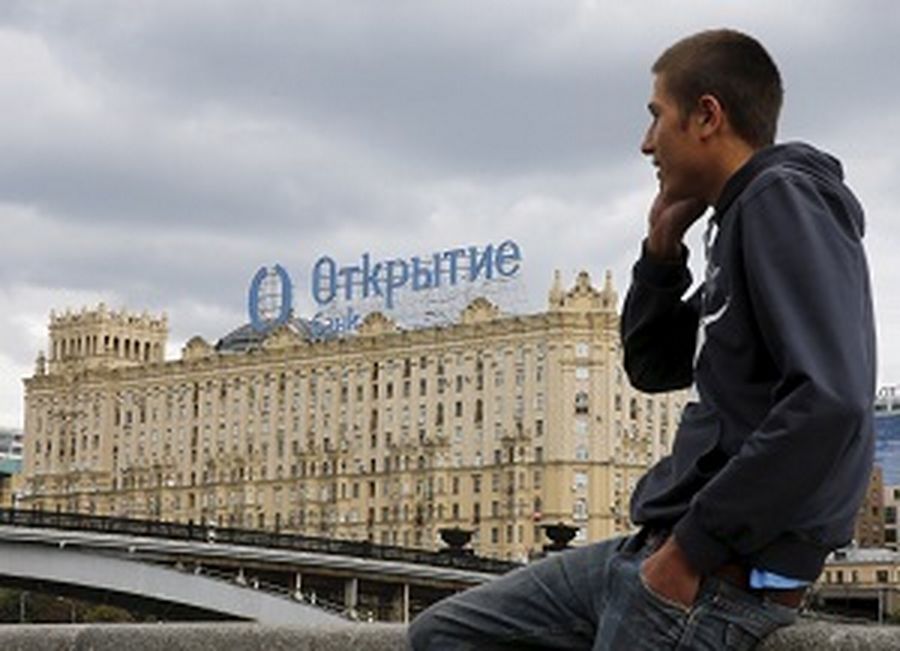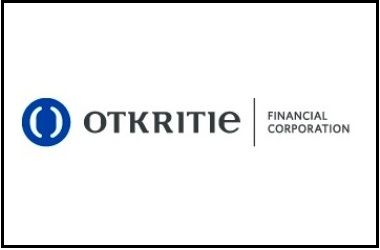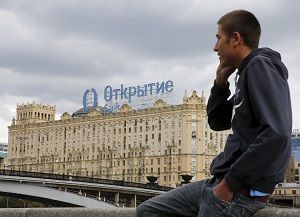
When Kirill Lukashuk and Alexander Proklov put out their view of the creditworthiness of Otkritie in early July, they never imagined the note might trigger a series of events that would push Russia’s largest private bank into a central bank bailout.
While the two analysts at the Kremlin-backed Analytical Credit Rating Agency raised concerns about Otkritie’s bad loan portfolio and dealings with its parent company, they considered the bank stable with a “surplus” of liquidity – enough for stress scenarios.
But within days of their BBB– rating being published, a bank run had begun. Over the next seven weeks, clients pulled out Rbs530bn (US$9.3bn) – equivalent to one fifth of Otkritie’s liabilities. By late August, it was forced to seek a bailout.
“In terms of liquidity, the bank was quite OK – in fact, it was overly liquid, but the amount of outflows was really huge,” said Lukashuk. “No bank could withstand such a run. They had been preparing for outflows, but management was surprised.”
“I wouldn’t say we awarded a low rating,” added Proklov. “It’s exactly at the mid-point of our range and therefore means that it is far from default or failure. It was some sort of panic based on rumours, based on the wrong understanding of what we did.”
NEW DEPOSIT RULES
Many have linked the bank run to new government rules dictating where state bodies, pension funds and insurers can park their money. The ACRA rating was below the new minimum requirements, and might have forced some such depositors to pull their cash.
“A material portion of the bank’s deposits was sensitive to those changes,” said Petr Paklin, an analyst at ratings agency Moody’s. “We know that the bank was preparing for a potential outflow of deposits, and had accumulated a liquidity cushion … to withstand the shock. But something went wrong.”
Outflows were certainly far bigger than can be explained just by the deposit rules. At the end of 2016, the bank had less than Rbs250bn of deposits from state bodies, pension funds and insurers. Many had pulled their money out well before the July 3 rating, say analysts.
In total, Rbs530bn was withdrawn from Otkritie – almost exclusively by corporate clients. Some believe those clients may have been spooked by a separate event on July 10, when smaller Bank Yugra was put into administration and a moratorium imposed on its debts following what the central bank said was a “manipulation” of deposits.
With anxieties high, rumours gained traction. Russia’s Federal Antimonopoly Service later intervened, ordering Alfa Bank to recall a note published by a wealth manager that warned clients to be vigilant dealing with some banks – including Otkritie.
But while corporate deposits reacted to the move, retail deposits remained surprisingly stable through July. Proklov thinks that is because concerns about Otkritie weren’t widely reported outside the specialised business media. “Nobody was really interested in creating panic among individual depositors - that is a very risky game,” he said.
OVER THE EDGE
In effect, the decision of some corporates – possibly only a handful, say analysts – to pull their money is what pushed Otkritie over the edge. Natalia Yalovskaya, an analyst at S&P, says previous downgrades hadn’t provoked anything similar.
“Why it happened, whether it was because of a rating assigned by ACRA or some additional factors played a role, is difficult to say,” she said. “We downgraded Otkritie in May this year, but I don’t recall such dramatic reaction.”
INTO THE BREACH
The Central Bank of Russia stepped into the breach, providing additional liquidity to Otkritie to help fill its liquidity gap. But then, by the end of August, the bank’s owners – it is majority-owned by some oligarchs and rival bank VTB – asked for additional help.
But the help the CBR says they requested will result in them effectively losing control of the business they built up. Although the CBR is still working out the size of the bank’s capital hole, it has said it will buy at least 75% of the bank through newly issued shares.
Analysts are puzzled about exactly how the bailout will work and why such a specific shareholding has been flagged before the size of the problem has been ascertained. Part of the issue is that the CBR is using new direct bailout powers for the first time.
“This mechanism of financial rehabilitation is a new toolkit: we haven’t seen any precedents yet,” said Paklin. “According to the new regulation, the central bank will become a controlling shareholder, and its final stake should depend on Bank Otkritie’s capital shortfall.”
MISSED CHANCES
The CBR has alleged that the bank may have also been overstating its capital, and has accused management of taking high risks in order to expand. It said it had already planned to order a capital increase before the deposit run.
Ironically, the central bank helped fuel the bank’s expansion. A huge funding line to oil giant Rosneft, which doubled Otkritie’s balance sheet overnight in late 2014, was itself funded by repo-ing Rosneft debt securities at the central bank.
That deal triggered a big drop in the rouble, and central bank head Elvira Nabiullina publicly criticised the transaction as “not transparent … impenetrable for the market and an additional factor in volatility”. Some believe she should have acted sooner.
“I would ask why they didn’t take action earlier – not by taking over the bank, but by limiting certain risk areas the bank was entering into … instead of waiting and having to intervene when there are only limited solutions available,” said S&P’s Yalovskaya.
But the CBR’s hands may have been tied, at least until last month, say others.
“Unfortunately, at the moment, the central bank has really low power to intervene,” said Lukashuk. “Probably – and it is my guess – they wanted to intervene but didn’t have the instrument and approval according to legislation to address the situation.”
Neither Otkritie nor the CBR responded to requests for comment.

